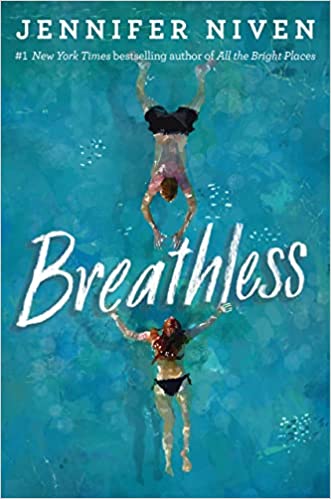 I am a big fan of Niven’s first book (All the Bright Places—it’s one of my favorite books) so I’ve read both her others, including Breathless. One thing that I like about her books overall is that they’re all different. Her first two feature dual perspective, on the girl’s and one the boy’s, but in this one, she sticks with the single protagonist, a girl named Claude who’s just about to graduate high school when the book opens.
I am a big fan of Niven’s first book (All the Bright Places—it’s one of my favorite books) so I’ve read both her others, including Breathless. One thing that I like about her books overall is that they’re all different. Her first two feature dual perspective, on the girl’s and one the boy’s, but in this one, she sticks with the single protagonist, a girl named Claude who’s just about to graduate high school when the book opens.
At first, everything’s just fine—everything’s cool with her parents, her best friend and other friends are all great, and she has a boyfriend she likes well enough. Her boyfriend is of course desperate to have sex, and she’s been putting it off. It’s not a moral dilemma for her; instead, she just isn’t sure if this is the guy she wants to first have sex with. Which she firmly believes is not “losing” anything, thank you very much. When an opportunity presents itself and she very clearly choses not to sleep with him, it’s pretty clear to both of them that this is her final decision. So that’s over, but she’s unfazed and re-fixates on a long-time crush.
But this isn’t the only fissure in her otherwise just-fine life. Her dad shocks her—or takes the floor out from under her—by telling her he’s leaving. She is torn up about this, and her parents have insisted she not tell anyone, even her best friend (Saz), which is torture for her. And then, Saz has a new girlfriend she’s really into, and Claude feels a little left behind. Not to mention the fact that she and Saz are planning to go to different colleges several states apart, anyway.
To make things worse, her mom has decided the two of them are going to go away to a tiny island on the coast of Georgia, where neither her crush nor Saz will be. And then when she gets there, it turns out that there is no cell service except in the general store that is open at the whim of the store owner. How’s she supposed to stay in touch with everyone?
But that’s all just setup. Really, this is a book about first love when it happens at that weird quasi-adult time of your life. Because soon after Claude meets a down-to-earth guy named Jeremiah who works summers on the island (I mean, seriously—the dude wears no shoes), her world starts to shift. But Claude is pissed off about being away from everything she cares about, so it’s not all sunshine and roses with them at first. But soon they start to bond, and promise each other they won’t fall in love. This time she feels differently about sex and her new boyfriend in general. They don’t necessarily follow all their own rules, either.
It’s enjoyable to see Claude grow as her experiences expand beyond the smallish Ohio town she grew up in. She wasn’t exactly naive in the first place, but it’s one thing to be aware of differences and another to experience them. She and Saz have some work to do, and she’s also got to figure out how to feel about her dad, because the split is all about him. By the end, Claude has figured out things well enough to move forward with the next stage of her life. The book features a rather open ending, which often I don’t like, but I did here. It feels more authentic this way
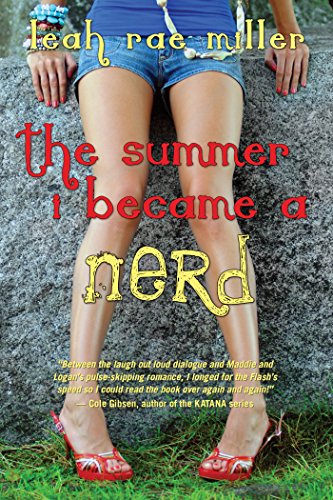 Maddie has several things she’s passionate about, but none of them are the things she’s “supposed” to care about. She’s a cheerleader dating one of the school’s finest catches—the quarterback—and everyone has forgotten a disastrous incident in junior high, where she outed herself as a nerdy and very enthusiastic comic book fan and was laughed off the costume contest stage. The only thing she could think to do was pretend it never happened, and never, ever mention comics in front of anybody ever again.
Maddie has several things she’s passionate about, but none of them are the things she’s “supposed” to care about. She’s a cheerleader dating one of the school’s finest catches—the quarterback—and everyone has forgotten a disastrous incident in junior high, where she outed herself as a nerdy and very enthusiastic comic book fan and was laughed off the costume contest stage. The only thing she could think to do was pretend it never happened, and never, ever mention comics in front of anybody ever again.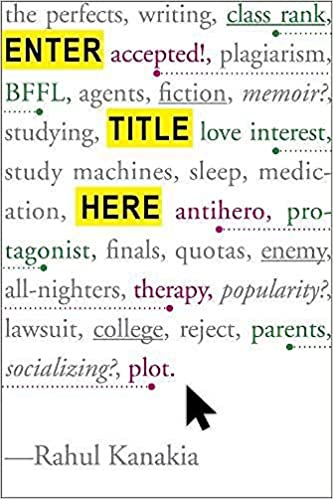 Rahul Kanakia’s pathologically competitive and high-achieving teenager Reshma Kapoor may cause less bloodshed than a favorite literary psyche authors love to explore—the serial killer—but she’s a fresher voice and even more deliciously warped. Early on, Reshma ponders her social life, concluding that “Alexandra is probably the closest thing I have to a friend. Which isn’t that close, because she’s not actually my friend at all: she just sells me Adderall sometimes.” This is exactly who Reshma is. She’s laser-focused on maintaining a perfect GPA in order to be valedictorian so she can get into Stanford. She will stop at nothing to make that happen, and if drugs give her the edge she needs, so be it. It is a joy to watch her, waiting for the train wreck.
Rahul Kanakia’s pathologically competitive and high-achieving teenager Reshma Kapoor may cause less bloodshed than a favorite literary psyche authors love to explore—the serial killer—but she’s a fresher voice and even more deliciously warped. Early on, Reshma ponders her social life, concluding that “Alexandra is probably the closest thing I have to a friend. Which isn’t that close, because she’s not actually my friend at all: she just sells me Adderall sometimes.” This is exactly who Reshma is. She’s laser-focused on maintaining a perfect GPA in order to be valedictorian so she can get into Stanford. She will stop at nothing to make that happen, and if drugs give her the edge she needs, so be it. It is a joy to watch her, waiting for the train wreck.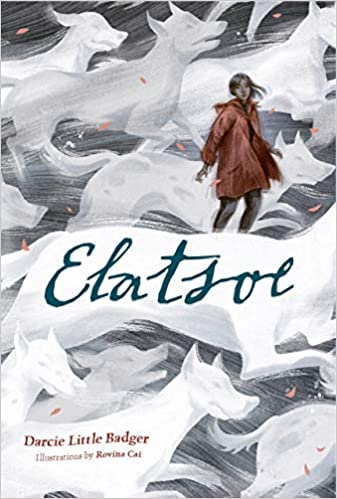 I lucked into finding this book to fulfill the “genre novel by an Indigenous, First Nations, or Native American author” category for the Read Harder challenge (which I am so not going to finish—my reading has slowed so much this year). It definitely fits that bill, as an urban fantasy grounded in Apache and other native cultures. The characters exist in an unusual world where certain aspects of the supernatural are recognized and handled in different ways, but otherwise it is just like modern America, microaggressions and all.
I lucked into finding this book to fulfill the “genre novel by an Indigenous, First Nations, or Native American author” category for the Read Harder challenge (which I am so not going to finish—my reading has slowed so much this year). It definitely fits that bill, as an urban fantasy grounded in Apache and other native cultures. The characters exist in an unusual world where certain aspects of the supernatural are recognized and handled in different ways, but otherwise it is just like modern America, microaggressions and all.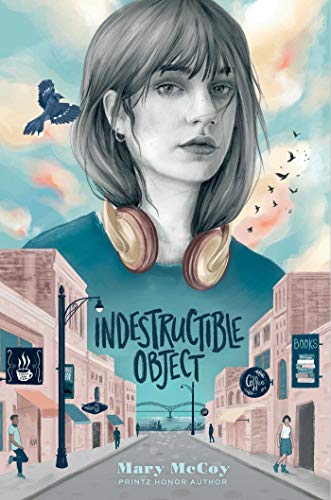 This is my third McCoy book, and one thing I think is cool is that they’ve all been fairly different from each other. Though this one and I, Claudia do share some similarities, in that both protagonists are recording their experiences (I, Claudia in an epistolary fashion, and Indestructible Object as within-the-story podcasts).
This is my third McCoy book, and one thing I think is cool is that they’ve all been fairly different from each other. Though this one and I, Claudia do share some similarities, in that both protagonists are recording their experiences (I, Claudia in an epistolary fashion, and Indestructible Object as within-the-story podcasts).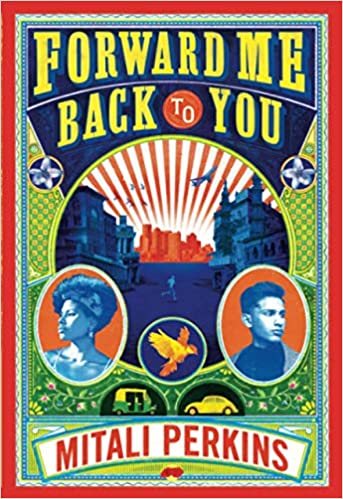 I enjoyed one of Perkins’ earlier books, which I reviewed here. Forward Me Back to You is another winner.
I enjoyed one of Perkins’ earlier books, which I reviewed here. Forward Me Back to You is another winner.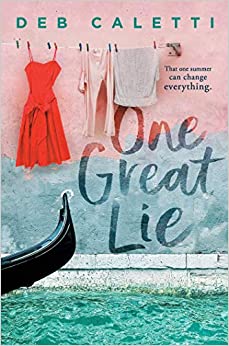 I’ve been in the worst reading slump lately. From early March until a couple weeks ago, I read only one novel, and it was really hard to get through (not the novel’s fault—it was all me). But I’ve been wanting to break out, so I picked up Caletti’s newest. I started it on Friday and was so sucked in that I finished it the next day. It may have broken the slump (I’m hoping), as I’ve read another book since then, too.
I’ve been in the worst reading slump lately. From early March until a couple weeks ago, I read only one novel, and it was really hard to get through (not the novel’s fault—it was all me). But I’ve been wanting to break out, so I picked up Caletti’s newest. I started it on Friday and was so sucked in that I finished it the next day. It may have broken the slump (I’m hoping), as I’ve read another book since then, too.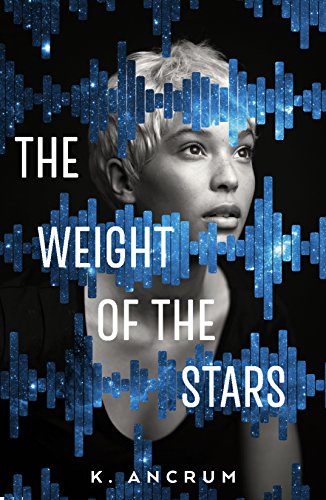 The premise of this quiet book is really interesting. A couple of decades earlier, a private space company send a bunch of young women on a one-way trip out of the solar system. While I do not in any way see the appeal of this, it is an interesting concept and I’m sure there are people who would sign up.
The premise of this quiet book is really interesting. A couple of decades earlier, a private space company send a bunch of young women on a one-way trip out of the solar system. While I do not in any way see the appeal of this, it is an interesting concept and I’m sure there are people who would sign up.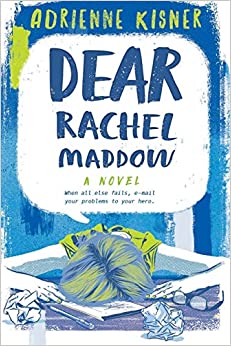 This is a book I picked up for one of my reading challenges, but I was looking forward to it even though I’m not a huge fan of epistolary novels. But I like Rachel Maddow and she always reminds me of an old friend, so I figured it would be a good read.
This is a book I picked up for one of my reading challenges, but I was looking forward to it even though I’m not a huge fan of epistolary novels. But I like Rachel Maddow and she always reminds me of an old friend, so I figured it would be a good read.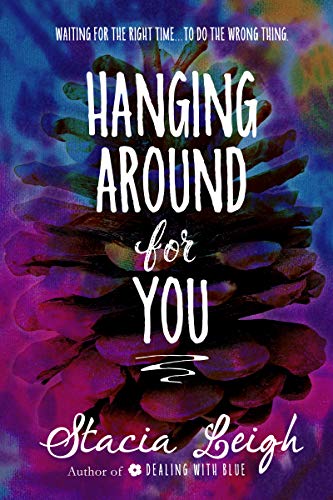 Hanging Around for You is a YA romance set in Leigh’s biker world in the mountains of (I think) Oregon. The first two books were clearly tied together, but this third one’s connection is much looser, though it’s there. Pinecone, the heroine, made an appearance in Leigh’s second book (Burnout, previously reviewed
Hanging Around for You is a YA romance set in Leigh’s biker world in the mountains of (I think) Oregon. The first two books were clearly tied together, but this third one’s connection is much looser, though it’s there. Pinecone, the heroine, made an appearance in Leigh’s second book (Burnout, previously reviewed 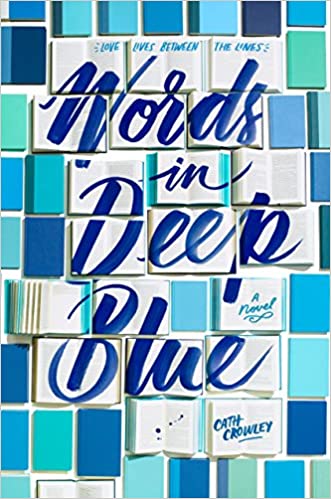 This moving book by Australian author Cath Crowley is really something. It explores grief and love in a deep way, bordering on philosophical but without straying from the novel that it is.
This moving book by Australian author Cath Crowley is really something. It explores grief and love in a deep way, bordering on philosophical but without straying from the novel that it is.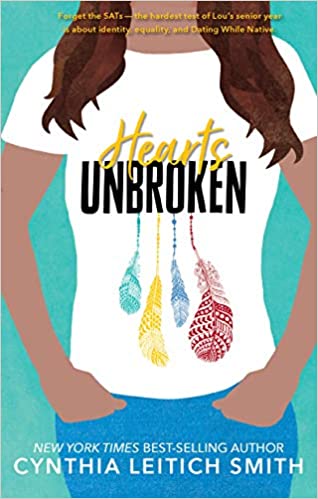 This is a rare book, featuring a Native American girl dealing with some interesting problems. The fact that her family is Native is important for a lot of reasons, including the plot and her identity. Lou is Muscogee (Creek), which was kind of cool for me because the Creek Nation extends from the southern edge of Tulsa a ways south, and the one time I went to a casino, it was the Creek Nation one that’s less than two miles from parent’ house. Not that I’m saying that casinos=Indian culture by any means, but I always find it fun to see something that is somewhat familiar to me in books I read, which rarely happens because I don’t generally live in cool places.
This is a rare book, featuring a Native American girl dealing with some interesting problems. The fact that her family is Native is important for a lot of reasons, including the plot and her identity. Lou is Muscogee (Creek), which was kind of cool for me because the Creek Nation extends from the southern edge of Tulsa a ways south, and the one time I went to a casino, it was the Creek Nation one that’s less than two miles from parent’ house. Not that I’m saying that casinos=Indian culture by any means, but I always find it fun to see something that is somewhat familiar to me in books I read, which rarely happens because I don’t generally live in cool places.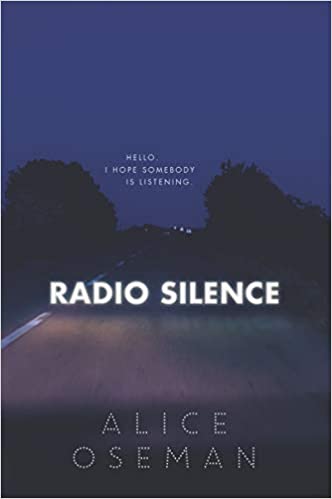 This is a hefty book for a contemporary, coming in at over 420 pages, but I enjoyed every bit of it.
This is a hefty book for a contemporary, coming in at over 420 pages, but I enjoyed every bit of it. I read this sharp Pride and Prejudice remix quickly because it really sucked me in.
I read this sharp Pride and Prejudice remix quickly because it really sucked me in.